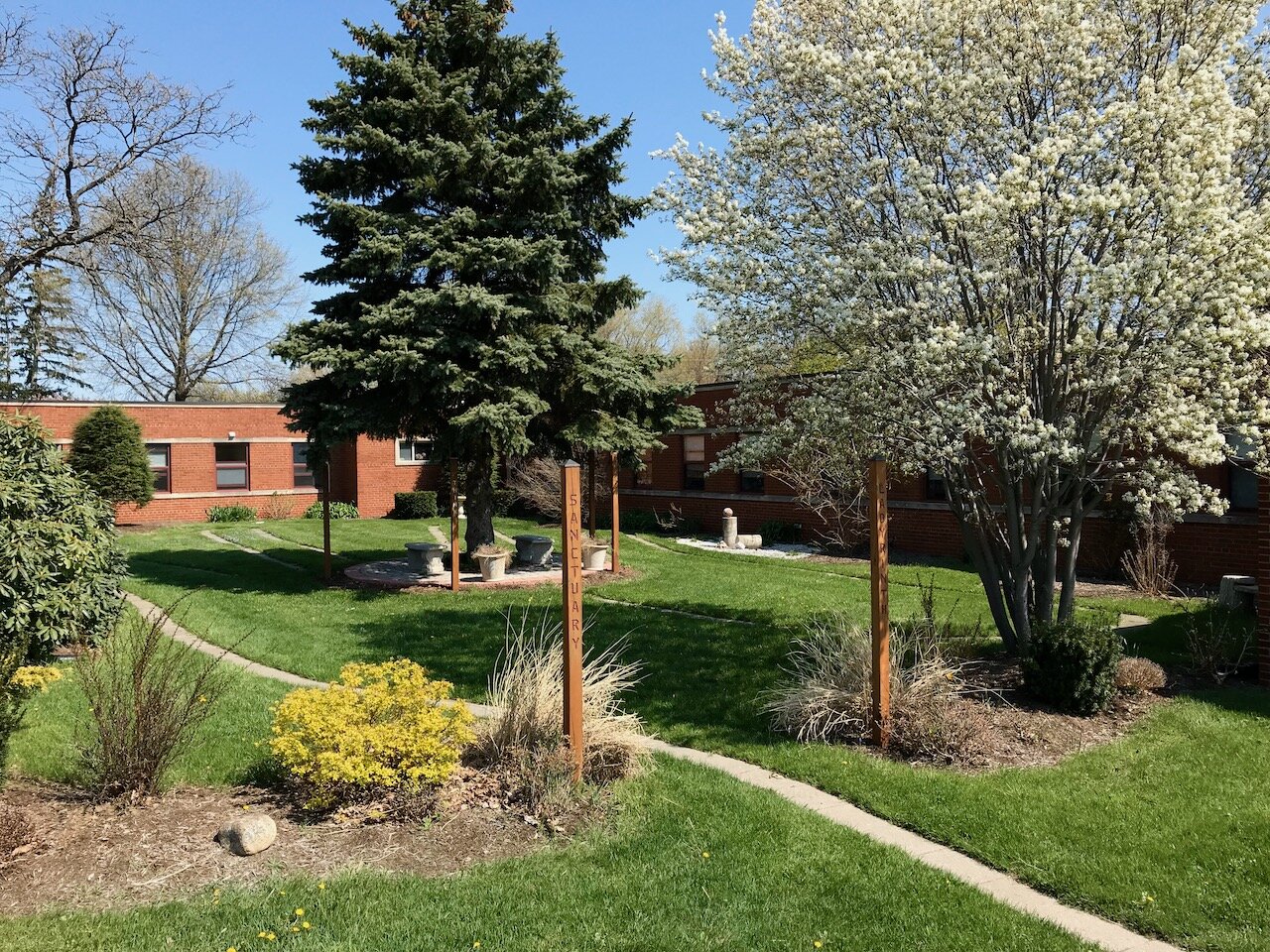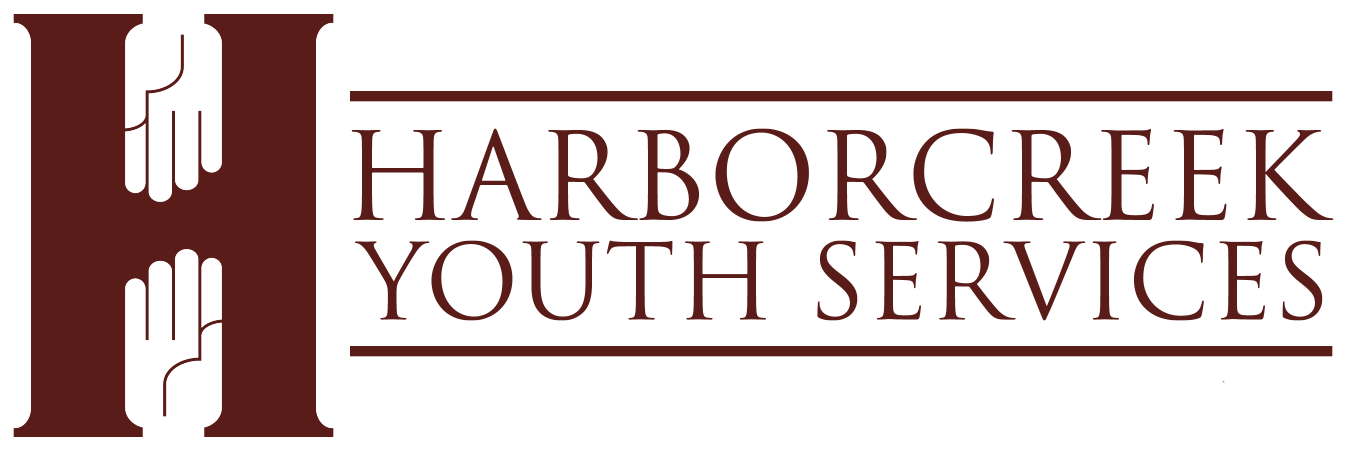
Residential Services
Residential Life at Harborcreek Youth Services
*Please note: portions of this video are out-of-date (for example, Honda has discontinued their NYPUM Program, and we no longer keep livestock), but other aspects and our core beliefs remain the same: we help kids healing from complex trauma. It should also be noted that in the time since this video was produced, Erin Bastow, MS, LPC, NCC, was promoted to Clinical Director and Tim Borgia to Admissions Coordinator.
Residential Behavioral Health Services are at the heart of our organization and encompass aspects of treatment in which we have invested a great deal of training and effort. When a new program participant walks in the door the first time, they are joining a treatment community that embraces the Sanctuary Model®. That means HYS is committed to beginning and continuing our relationship with each young person by acknowledging the importance and impact of where they’ve been. Then, we engage with them to create a safe, therapeutic space in which we can help them achieve goals and, ultimately, get where they want to go. Sanctuary® is an every-hour-of-every-day treatment approach and forms the basis of treatment at HYS.
All of our program participants are referred to HYS because of Behavioral Health concerns: conditions that manifest as difficulty in regulating mood, thinking, and behavior. The HYS treatment teams help each youth to learn more about how these conditions may be influencing their actions every day. Most of the youth are seen by a psychiatrist who evaluates them and may even prescribe medication to support their efforts to improve the way they act and feel.
Every program participant is also assigned an HYS therapist who is well-trained in a variety of models and techniques. HYS is invested deeply in our Developmental Trauma Model, which uses state-of-the-art techniques like Trauma Release Exercises (TRE), Progressive Counting, and Eye Movement Desensitization and Reprocessing (EMDR) to help youth overcome the devastating effects of trauma. Therapists use these and other techniques according to the situation and needs of each youth. Special groups and family therapy are also used to educate and work through important issues. The treatment at HYS helps our youth address the traumas of their past, and progress safely toward a stronger future after they leave our care.
Kids reside in one of our on-campus dormitories (units) based upon individual, mental health, and behavioral needs, with consideration given to chronological and developmental age as well as social functioning level. HYS provides programs and intensive treatment in every unit and operates with a system of points and privileges embedded in a greater structure of treatment-driven, trauma-focused programming. In addition to clinical therapy, a resident’s routine would include:
• Three community meetings per day
• Skill-building psycho-education group
• Point and problem-solving group
• Morning/evening chores and laundry service
• Afternoon and evening recreation activities and/or community service
• Complete dining services, coordinated by our on-site chef
• Access to a medical department with licensed nurses
• On-site, monthly check-ups with their primary care physician
• Medical appointment scheduling and transportation
• Supervised family visitation hours and/or Virtual Visits
Our Residential Treatment Program emphasizes and provides:
Trauma-Informed Care, provided by a psychiatrist-led Treatment Team approach. Psychiatrists not only meet with youth and families several times a month, but also with the child care staff, therapists, and others involved in providing treatment and support.
A supervised treatment milieu that follows the Sanctuary Model®, with trained staff at the ready to work on individual goals and provide daily counseling and guidance.
Psychiatric evaluation and medication monitoring for behavioral health conditions.
Individual and Group Therapy provided by therapists specially trained in addressing trauma and behavioral health issues. This assists youth in learning how past events and mental health concerns impact their choices, feelings, and behavior.
Family Therapy, to help youth and their families be connected and address home issues and future planning.
A growing Multisensory Therapy Program that includes our longstanding Writers’ Group, as well as:
Music Therapy, where certified Music Therapists use rhythm, words, and music as a unique and additional medium through which participants accomplish treatment goals. Listen here!
Art Therapy, which encourages youth to use many different kinds of media to express their ideas and feelings with guidance from our Art Therapist.
Movement Therapy, in the forms of Trauma Release Exercises and Trauma-Informed Yoga.
An Enhanced Reading Program (The Barton System), which is an evidence-based structured language program that helps eligible students achieve amazing progress in reading, spelling, and language comprehension - all of which can be negatively impacted by complex trauma.
The Good Life Program (for Problem Sexual and other Harming Behavior), which focuses on motivational factors for problem sexual behavior, utilizing the Good Lives Model as a means of designing individualized treatment, and increasing protective factors while decreasing risk.
Community Service and Restitution as a goal and focus during treatment. Residents have both on- and off-campus opportunities to contribute to the well-being of the entire community, and to make restitution if required. Community service is at the heart of Harborcreek Youth Services’ therapeutic programs. These interactions help develop empathy for others and are a win-win for the youth, residents, and organizations with whom they work.
For more information on Residential Treatment Services at HYS or to make a referral, contact our Admissions Team. Admissions, provision of services, and client referrals are made without regard to race, color, religious creed, disability, ancestry, national origin (including limited English proficiency), age, or sex.

